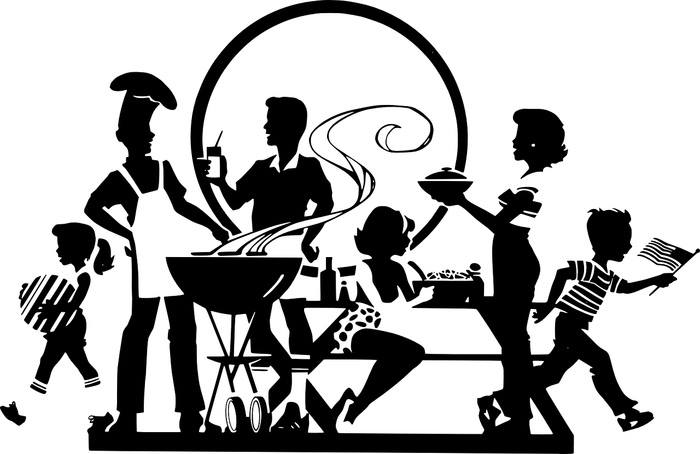Blog
-

Ten Tips For Enjoying A Summer Barbecue With Hearing Loss
 22 Jul , 2016
22 Jul , 2016
1. Position yourself in a good spot: Usually at a BBQ, the seating is fairly casual, so join a group that is in a quiet and well-lit location. Sit so that your back is to the sun to avoid glare on people’s faces when trying to lipread.
2. Limit background noise: If I am hosting, I always keep background music to a minimum. Other hosts may like to play music more loudly. When outdoors, music is typically less of an issue, but if it is, choose a spot away from the speakers or ask the host to lower the volume. Be sure to wear hearing protection if there will be fireworks. You could bring extra earplugs so everyone will have them.
3. Converse with a variety of small groups: At a large seated dinner, it can sometimes be hard to follow the conversation, but at a BBQ, the seating is usually less formal. Take advantage of the opportunity to mingle with various small groups of people or even seek out people to talk with one on one.
4. Wear your hearing aids: Experiment with a couple of different settings to find which is best for being outdoors. You can practice at home if you don’t want to spend time experimenting at the event. Check if there is a setting that can cut down on wind noise if it will be a windy day.
5. Try other technologies: There are many new technologies now available that can help you hear in a group setting including personal FM systems or other one to one communication devices. Some of my friends swear by these.
6. Have reasonable expectations: You probably won’t hear everything that everyone says, but that is ok. If one group is harder to hear, find another to join. Mobility and mingling is the norm at a barbecue.
7. Take a break: Don’t be shy about taking a break from the action for a few minutes to give your ears and brain a rest. Head to the restroom, or find a quiet spot inside to sit for a few minutes. It really helps me to clear my head and build up some energy for another round of socializing.
8. Don’t fake it: It is very tempting to just nod along and pretend that you hear what others are saying or laugh just because others are laughing. But it can be dangerous, particularly if someone is asking you a question. Be brave and be honest with others if you are having trouble hearing. It will make your interactions more memorable on both sides.
9. Give visual clues to indicate if you are having trouble hearing: If you are having trouble hearing, you can cup your ear with your hand to indicate to the speaker to speak louder without interrupting the flow of the conversation. I have seen this in action and it is very effective.
10. Bring your sense of humor: Try to laugh when hearing misfires occur. Be grateful for the wonderful friends and family around you. You may not hear every word they say, but you can partake in all of the good feelings nonetheless. Enjoy the feel of the sun or the breeze on your skin. Savor the warm weather — it will be gone in a flash.
Source:
From the “Living With Hearing Loss” blog by Shari Eberts. She is a hearing health advocate and writer. She blogs at Living With Hearing Loss and serves on the Board of Trustees of both the Hearing Health Foundation (www.hhf.org) and Hearing Loss Association of America (www.hearingloss.org). In 2015 she was named a HearStrong Champion for her work to change the stigma surrounding hearing loss. Shari has an adult-onset genetic hearing loss and hopes that by sharing her story it will help others to live more peacefully with their own hearing loss and tinnitus.Image credit: livingwithhearingloss.com





























































































































































































































































































































































































































































































































































































